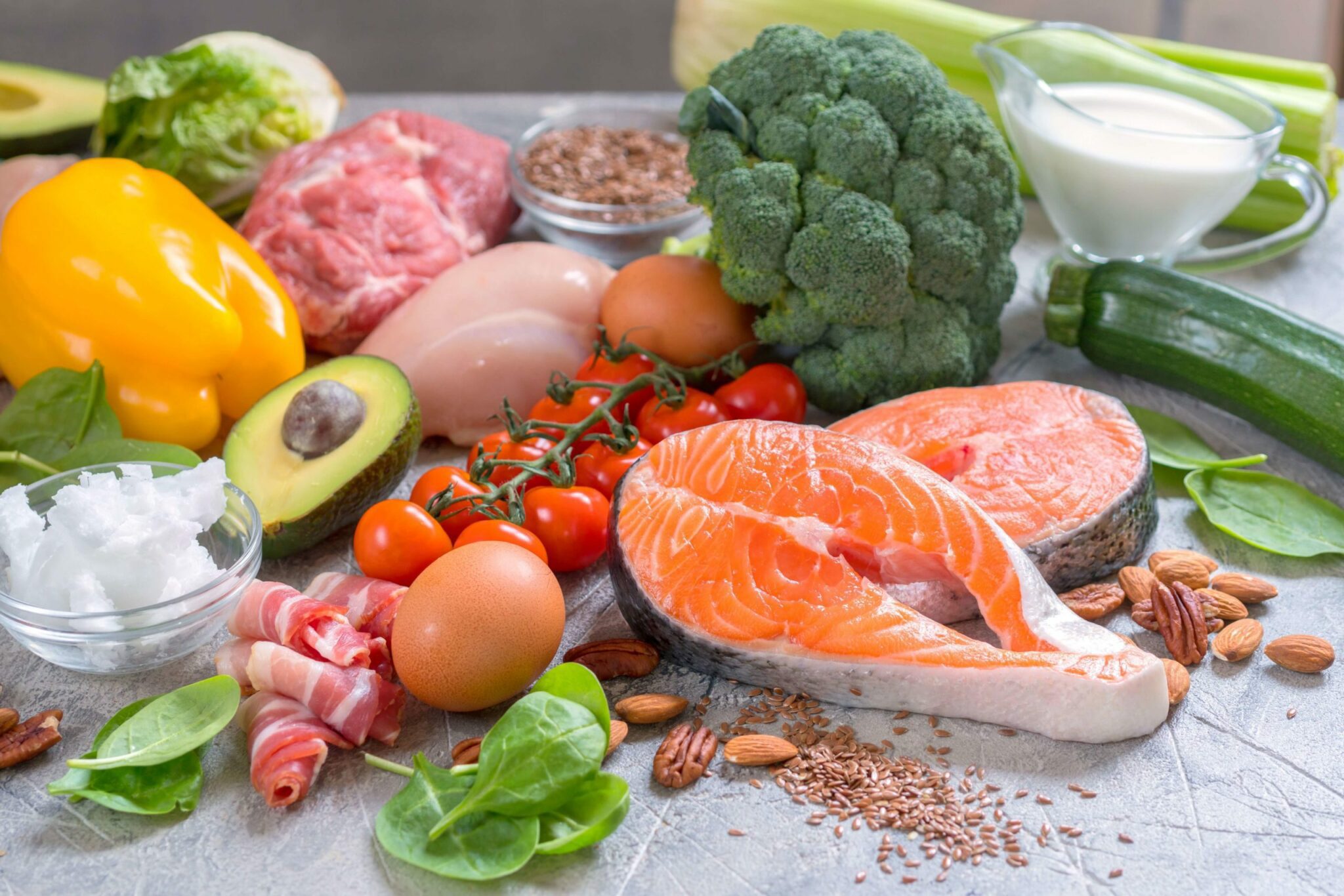هل نظام كيتو الغذائي ملائم لي؟

Popularly known as the ‘Keto’ diet, this is a low-carbohydrate, moderate-protein and high-fat diet that helps burn fat more easily. Our bodies run on either glucose or fat. A low carbohydrate intake sends the body into a metabolic state known as ketosis. This is where the liver produces ketones from fat. These ketones serve as a fuel source throughout the body. This means the fat from your body and from your diet is what is used as energy, hence this is the theory behind the weight loss seen with this diet.
What can I eat on the keto diet?
- Non-starchy vegetables, such as beans, broccoli, spinach and carrots.
- Seafood
- Plain Greek yoghurt
- Meat and poultry
- Coconut oil
- Olive oil
- Nuts and seeds
- Berries
- Butter and cream
- Dark chocolate and cocoa powder
What can’t I eat on the keto diet?
- Cereal
- Beer
- Sweetened Yoghurt
- Starchy vegetables (corn and sweet potato)
- Low fat salad dressing
- Beans and legumes
- Gluten-free baked goods
What are some of the proposed benefits to the keto diet?
- Helps in improving PCOS symptoms.
- Protects brain function.
- Helps with excess weight loss.
- Helps in reducing acne.
- Helps reduce risk of all cancer types.
- Helps in reducing seizures, especially for people diagnosed with epilepsy.
- Contains neuroprotective benefits that protect and strengthen brain functions.
Are there any negatives to the keto diet?
- Some people tend to experience ‘Keto Flu’ that results in fatigue, gastrointestinal distress and lethargy. It tends to pass away after sometime.
- Diarrhoea. This can occur as a result of lack of fibre in the diet and is common with low carb intake.
- The risk of heart disease is a concern with such high fat diets.
- Other problems associated with this diet are nutrient deficiency, constipation, increased stress on the liver and kidneys and increased irritability.
For further information on modern diets, click here. Also try Nabta’s Energy booster.
Nabta is reshaping women’s healthcare. We support women with their personal health journeys, from everyday wellbeing to the uniquely female experiences of fertility, pregnancy, and menopause.
Get in touch if you have any questions about this article or any aspect of women’s health. We’re here for you.
Sources:
- Cohen, J. “The Trendiest Diets Of 2018: Will They Work For You?” Forbes, 1 June 2018, www.forbes.com/sites/jennifercohen/2018/06/01/the-trendiest-diets-of-2018-will-they-work-for-you/#55a137aa3aca.
- Gibas, Madeline K., and Kelly J. Gibas. “Induced and Controlled Dietary Ketosis as a Regulator of Obesity and Metabolic Syndrome Pathologies.” Diabetes & Metabolic Syndrome: Clinical Research & Reviews, vol. 11, Nov. 2017, pp. S385–S390., doi:10.1016/j.dsx.2017.03.022.
- Gower, B A, and A M Goss. “A Lower-Carbohydrate, Higher-Fat Diet Reduces Abdominal and Intermuscular Fat and Increases Insulin Sensitivity in Adults at Risk of Type 2 Diabetes.” Journal of Nutrition, vol. 145, no. 1, Jan. 2015, pp. 177S–183S., doi:10.3945/jn.114.195065.
- “Should You Try the Keto Diet?” Harvard Medical School, Oct. 2018, www.health.harvard.edu/staying-healthy/should-you-try-the-keto-diet.










